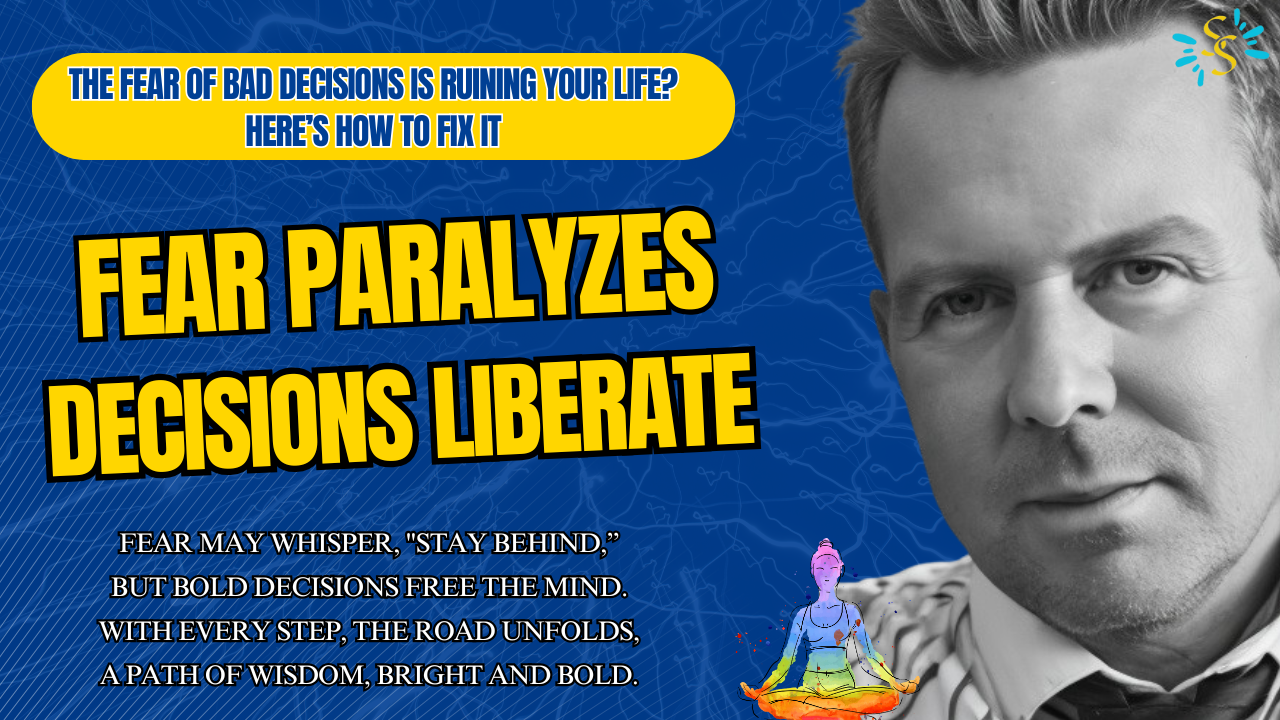Have you ever made a decision that didn’t go the way you hoped? Maybe you picked the wrong meal at a restaurant or chose an outfit that didn’t quite work. We’ve all been there! But here’s the thing—making the “wrong” decision isn’t the end of the world. In fact, it’s one of the best ways to learn and grow.
New research shows that avoiding decisions altogether can be more harmful than making imperfect ones. In psychology, this is called “decision avoidance,” and it can lead to missed opportunities and increased anxiety. Even ancient philosophers like Seneca believed that “Life is long if you know how to use it.” In other words, don’t waste time stuck in indecision—act, learn, and move forward.
Let’s explore how small, everyday choices—even when they don’t work out—can help us make better decisions in the future.
[Scene 1 – Morning Decisions: The Breakfast Dilemma]
Picture this: It’s breakfast time, and you’re deciding between pancakes or a fruit smoothie. You choose pancakes but realize halfway through that you feel too full and sluggish afterward. Was it a bad decision? Maybe—but now you’ve learned something valuable about how certain foods affect your energy.
This process is what psychologists call “learning through feedback.” When a decision doesn’t turn out as expected, your brain automatically updates its internal “decision-making guide” for next time. Think of it like Thomas Edison, who reportedly said about his failed experiments, “I have not failed. I’ve just found 10,000 ways that won’t work.” Every so-called failure adds depth to our understanding.
[Scene 2 – Midday Choices: The Lunch Experiment]
It’s lunchtime, and you’re trying something new at your favorite café. You order a trendy-looking salad you’ve never tried before, but it turns out to be a bit… disappointing. Do you regret ordering it? Maybe for a moment. But now you know that particular salad isn’t your thing—and you might even discover what flavors or ingredients you prefer in the process.
In decision science, this is called “exploration vs. exploitation.” We explore when we try new things, even if they don’t work out, and exploit when we stick with what’s familiar. Both are essential to becoming better decision-makers. Remember: exploration fuels growth.
[Scene 3 – Evening Wind-Down: TV Show Regret]
After dinner, you settle in for some TV. You decide to try a new show instead of continuing your go-to favorite. After two episodes, you realize it’s just not for you. Was that a waste of time? Not really. You explored something new and gained clarity about your preferences. Now, you can confidently skip similar shows in the future.
Historical figures like Abraham Lincoln often spoke about resilience through failure. He faced multiple political losses before becoming president, famously saying, “My great concern is not whether you have failed, but whether you are content with your failure.” Learning what doesn’t work is how we uncover what does.
[Scene 4 – The Bigger Picture: Decisions as Preparation]
These everyday “mistakes” might seem trivial, but they’re actually practice for life’s bigger decisions. Every choice—good or bad—adds to your experience bank. You build decision-making muscles by learning from what doesn’t work, making you better prepared when it really counts.
Studies in behavioural economics show that making decisions, even imperfect ones, boosts confidence and reduces anxiety over time. The key is to avoid “analysis paralysis”—that frozen state where fear of making the wrong choice keeps us from acting at all.
[Expert Insight]
Consider Leonardo da Vinci once again. He made countless sketches and prototypes that never saw the light of day, yet each one taught him something new. He might remind us that the only truly “bad” decision is refusing to try.
Here’s some practical advice inspired by decision-making research:
-
Start Small: Practice with everyday choices—what to wear, what to eat, or what hobby to try.
-
Reframe Mistakes: Instead of seeing a decision as “bad,” view it as data for future choices.
-
Keep Moving Forward: Don’t get stuck in regret. Learn, adjust, and keep going.
-
Reflect, Don’t Dwell: Look back with curiosity, not judgment.
-
Take Informed Risks: Even small risks build confidence over time.
[Closing Thought]
So, the next time you order a dish you don’t like, pick the wrong movie, or wear the “meh” outfit, remember—you’re learning. Each misstep sharpens your instincts for next time. As Yogi Berra might say, “If you don’t know where you’re going, you might end up somewhere else.” But even if you do, you’ll come back with more wisdom and confidence than before.
Decisions, big or small, are stepping stones. The path may twist and turn, but every choice you make leads you somewhere worthwhile.
Thanks for watching! Don’t forget to like and subscribe for more insights on life’s small (and not-so-small) decisions. See you next time!

